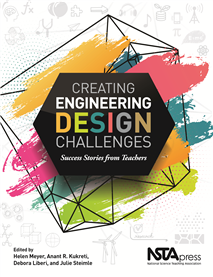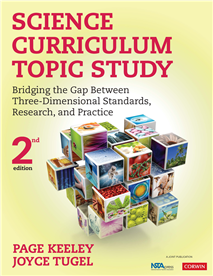All High School resources
Journal Article
Ecologists are biologists who study entire ecosystems and the interactions among their living and non-living components. Ecology can be applied in areas such as conservation biology, natural resource management, and even economics. Todd Elliott, who ...
By Luba Vangelova
Journal Article
“Plants do photosynthesis and animals do cellular respiration.” At some point in our science classes many of us have had this statement uttered to us by a teacher or said it to help students remember one of the key distinctions between plants and...
By Jennifer l. Maeng and Amanda Gonczi
Journal Article
Interactive science simulations (sims) have become popular tools for science educators, and research confirms that sims can improve student learning (Rutten, van Joolingen, and van der Veen 2012). Over the past 15 years, the PhET Interac- tive S...
By ARGENTA PRICE, CARL WIEMAN, AND KATHERINE PERKINS
Journal Article
Atmospheric Scientist Shawn Urbanski
Atmospheric scientists study the chemical composition of the atmosphere. More specifically, they look at how atmospheric gases, liquids, and solids interact both with each other and with the earth’s surface. This helps people understand such phenom...
By Luba Vangelova
Blog Post
Achieving Equity Through Assessments
Our school requires all students to take chemistry. We teach all levels, ranging from Collaborative/Inclusive Chemistry to Honors and AP Chemistry. All of our classes have students who speak different languages, as well as students with a range of so...
By Laura Littrell and Kevin Williams
Blog Post
NGSS: Planning for Science Success for All Students
Creating an Environment for All Students to Show Their Understanding Much discussion has focused on how the NGSS (and other state standards based on the Framework and NGSS) make science accessible to all students. I believe all students can be suc...
By Hallie Booth
Blog Post
How PLCs Helped Move Us Toward Equitable High School Assessment Practices
My colleagues and I began using units intentionally designed for the NGSS for biology in early 2017. We started with a high-quality unit evaluated by my colleagues on the Science Peer Review Panel, and eventually used a full program from the unit’s...
By Holly Hereau
eBook
Creating Engineering Design Challenges: Success Stories From Teachers (e-book)
If you’ve ever wished for advice you can trust on how to make science and math more relevant to your middle or high school students, Creating Engineering Design Challenges is the book for you. At its core are 13 units grounded in challenge-based le...
NSTA Press Book
Scientific literacy for all students requires a deep understanding of the three dimensions of science education: disciplinary content, scientific and engineering practices, and crosscutting concepts. If you actively engage students in using and apply...
By Page Keeley, Joyce Tugel






